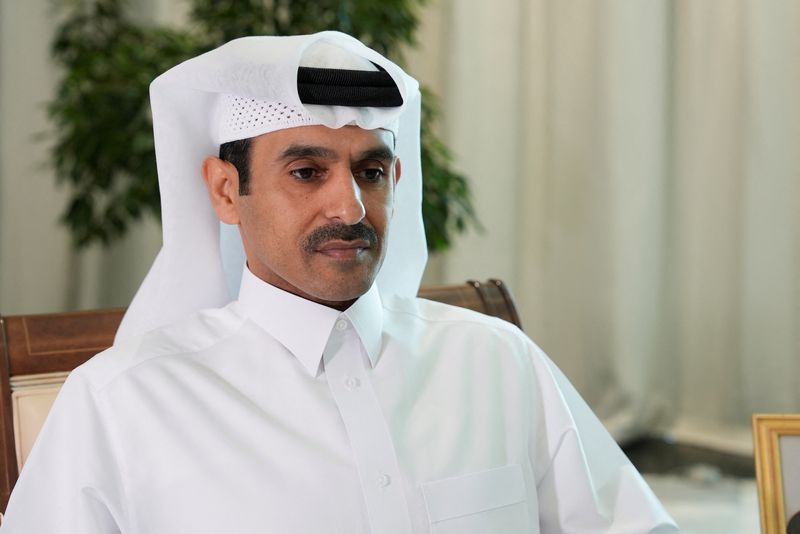In a recent statement during the Doha Forum, Qatar’s Energy Minister Saad al-Kaabi expressed the country’s confidence in managing the potential competition arising from U.S. President-elect Donald Trump’s commitment to lifting a cap on liquefied natural gas (LNG) exports. Kaabi downplayed concerns about an influx of LNG from the U.S., stating that the projects in question are driven by private entities which prioritize commercial viability. His remarks reflect Qatar’s resilient position in the global energy landscape and an assurance that it can withstand increased competition in LNG exports. Kaabi’s dual role as the Minister of Energy and chief executive of QatarEnergy highlights the nexus between government policy and corporate operations in this strategic sector.
When questioned about the future of Qatar-U.S. relations under Trump’s administration, especially concerning energy dynamics, Kaabi commented on the long-term nature of oil and gas projects, citing their ability to “survive governments.” His optimism about Trump’s presidency being beneficial for business indicates his belief that a pro-business environment can foster stronger ties and opportunities for both nations. This sentiment suggests that energy cooperation may continue to flourish, irrespective of the shifting political landscape, reinforcing Qatar’s standing as a major player in the global energy market.
Kaabi also spotlighted the potential ramifications of the European Union’s Corporate Sustainability Due Diligence Directive (CSDDD), which mandates larger companies in the EU to assess their supply chains for practices involving forced labor or environmental harm. He cautioned that the penalties associated with non-compliance could reach up to 5% of a company’s total worldwide revenue, posing significant risks for firms both in the EU and those doing business there. This regulatory framework could complicate international trade relationships, especially for LNG suppliers like Qatar that have invested heavily in meeting energy demands in Europe.
Furthermore, Kaabi questioned the implications of such stringent regulations, suggesting that they could dissuade Qatar from exporting LNG to the EU if it leads to significant penalties based on their global revenue. He stressed the importance of a constructive dialogue between Qatar and the EU, urging policymakers to consider the broader impact of these regulations on foreign investments and cooperation in the energy sector. By bringing attention to these concerns, Kaabi positions Qatar as a thoughtful and strategic energy provider that values equitable relations with its trading partners.
In correlation to the CSDDD, Kaabi indicated that institutions like the Qatar Investment Authority, with its substantial estimated value of $510 billion, may seek alternatives for investment if they perceive punitive regulations in the EU. His statements suggest that the EU needs to create a favorable economic environment to encourage foreign direct investment, as its own economies face challenges. Kaabi emphasized the necessity for mutual benefits in trade relations, suggesting that European nations have a growing reliance on external energy supplies, and any moves that restrict these flows could hinder their energy security and economic recovery.
In summary, Qatar’s strategic outlook towards the future of its LNG exports and international relations demonstrates a blend of confidence and caution. With expectations of U.S. energy policies under Trump, a cautious approach to EU regulatory frameworks, and an emphasis on long-term collaboration, Qatar is positioning itself to navigate the complexities of the evolving energy landscape. Kaabi’s remarks encapsulate a broader message on the importance of cooperative frameworks that balance sustainability and economic viability, ultimately reinforcing Qatar’s role in the global energy sector while being vocal about protecting its interests amid shifting geopolitical landscapes.

